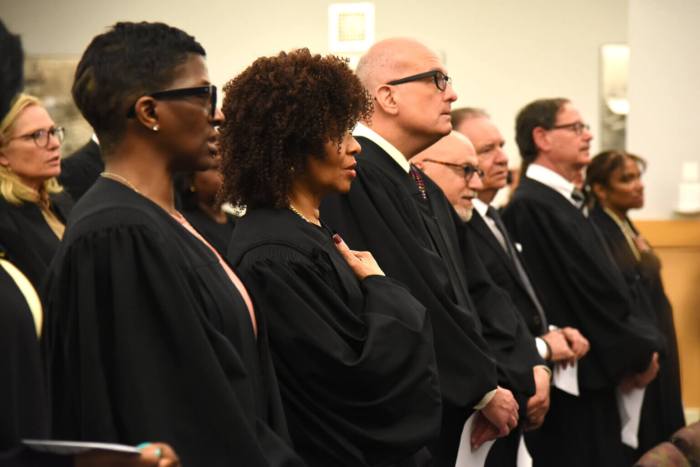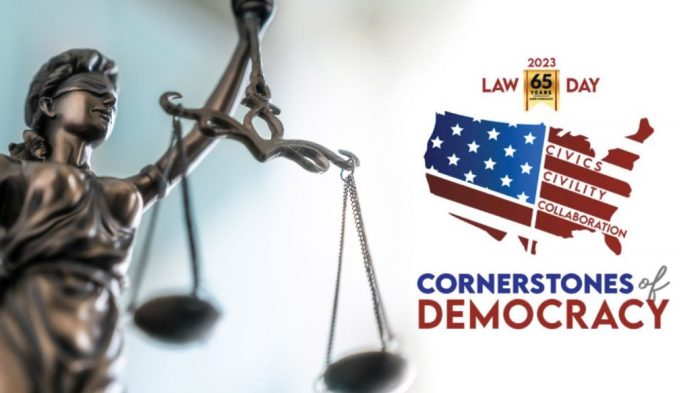Cornerstones of democracy civics civility and collaboration – The cornerstones of democracy—civics, civility, and collaboration—are fundamental to the functioning of a healthy and vibrant democratic society. These principles define the relationships between citizens, their government, and one another, and they provide the foundation for a just and equitable society.
Civics, the study of citizenship and government, is essential for informed participation in a democracy. Civility, the practice of respectful and constructive dialogue, is necessary for productive discourse and decision-making. Collaboration, the ability to work together towards common goals, is vital for addressing complex societal challenges.
Cornerstones of Democracy

Democracies are political systems that prioritize the collective will of the people, granting them the power to make decisions that shape their society. The fundamental principles of democracy include:
Popular Sovereignty
Citizens are the ultimate source of authority, exercising their power through elected representatives or direct participation in decision-making.
Equality before the Law
All citizens are subject to the same laws, regardless of their status or background.
Protection of Individual Rights
Citizens enjoy fundamental rights and freedoms, such as freedom of speech, religion, and assembly.
Majority Rule with Minority Rights, Cornerstones of democracy civics civility and collaboration
Decisions are typically made by majority vote, but the rights of minority groups are protected.
Free and Fair Elections
Citizens have the right to participate in regular, competitive elections to choose their representatives.
Civics and Citizenship

Civics
Civics is the study of the rights, duties, and responsibilities of citizens in a democracy. It encompasses knowledge of the political system, history, and values of the society.
Roles and Responsibilities of Citizens
- Voting and participating in elections
- Paying taxes and obeying the law
- Serving on juries and fulfilling other civic duties
- Respecting the rights of others and contributing to the common good
Civility in Discourse

Civility refers to respectful and constructive communication, especially in political and social discussions. It is essential for maintaining a healthy democratic society.
Challenges to Civility
- Social media echo chambers and polarized opinions
- Lack of critical thinking and media literacy
- Political polarization and partisan bias
Strategies for Promoting Civility
- Active listening and understanding different perspectives
- Using respectful language and avoiding personal attacks
- Focusing on shared values and common goals
- Promoting dialogue and open-minded discussions
Collaboration and Cooperation

Collaboration and cooperation are vital for solving complex societal problems and achieving shared goals.
Models of Collaboration
- Partnerships between government, non-profits, and businesses
- Community-based initiatives involving residents and local organizations
- International cooperation and diplomacy
Benefits of Collaboration
- Leveraging diverse perspectives and resources
- Enhancing efficiency and effectiveness
- Building trust and understanding among different groups
- Fostering a sense of community and collective ownership
Essential Questionnaire: Cornerstones Of Democracy Civics Civility And Collaboration
What are the fundamental principles of a democratic society?
The fundamental principles of a democratic society include the rule of law, equality before the law, freedom of speech and assembly, and the right to vote.
What is the importance of civics in a democracy?
Civics is important in a democracy because it helps citizens understand their rights and responsibilities, and how to participate effectively in the democratic process.
What is civility and why is it important in democratic discourse?
Civility is the practice of respectful and constructive dialogue. It is important in democratic discourse because it allows for the free exchange of ideas and the peaceful resolution of conflicts.
How can collaboration and cooperation contribute to societal progress?
Collaboration and cooperation can contribute to societal progress by bringing together diverse perspectives and resources to address complex challenges. When people work together, they can achieve more than they could on their own.